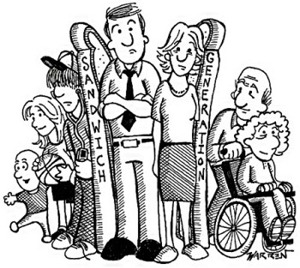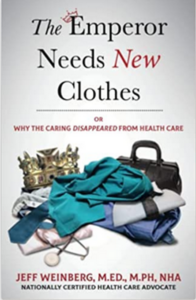How to Choose a Nursing Home
June 18, 2014Join the fight against Alzheimer’s disease
February 13, 2015
The “Sandwich Generation” is a term commonly used for a family caregiver – someone who is taking care of their own family, plus has the added responsibility of taking care of an older family member, plus is working full time. Most often, this is a woman between the ages of 45 and 55.
This person, much like a sandwich, is caught in the middle between work, family and caretaking responsibilities. The squeeze of roles places constant demands on their time, often leaving them stressed and overwhelmed.
Many of these family caregivers find themselves having to make tough decisions, often involving leaving their jobs or taking a leave of absence because they simply cannot keep all the balls in the air.
A client I recently worked with had to quit her full time job to take care of her mother who had dementia. Over time, she became extremely depressed. She felt she was losing her own identity in the process of becoming a caregiver.
It is estimated that the role of the family caregiver will continue to multiply as people continue to age. An AARP study in New York stated that family caregiving takes its toll emotionally, physically, and financially; the survey showed that 85% of family caregivers reported a strain on their quality of life, with more than half citing “overwhelming” or a “good deal of” strain.
Senior Assistance can help a caregiver and their family by providing resources, information, intervention, assessment and much more.
I recently had the opportunity to discuss the plight of the working caregiver, a.k.a. the “Sandwich Generation” with Susan Baida, co-founder and president of ECareDiary.com. Take a look at the video below…

